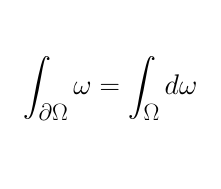The Ill Luck Paradox
The ill luck paradox is one of my favorite counterintuitive results. I got it from Counterexamples in Probability and Statistics , who got it from Feller Volume 1 .
Here's the short version of the paradox: on average, it should take forever to set new marathon records (or any kind of record). It should also take forever to not set a record.
We have a sequence of continuous, iid random variables $\mathcal{X} = [X_1, X_2, \ldots]$. We could think of these as, for instance, the times achieved by an infinite sequence of marathon runners drawn from the same population.
Define the random variable $R_w$ as the smallest $i > 1$ such that $X_i < X_1$. That is, it's the number of the first runner to beat the very first runner ($w$ for win). Define $R_l$ similarly, but with $X_i > X_1$ ($l$ for lose): the number of the first runner who doesn't beat the very first runner.
Then $E[R_h] = E[R_l] = \infty$, i.e. it will on average take forever for anyone to beat the first runner, and it will on average take forever for anyone to not beat the first runner. And of course $P(R_h = 2 | R_l = 2) = 1$: the second runner is guaranteed to either beat or not beat the first runner.
Proof
Consider the first $n$ runners. Since they're all identical, the probability that the last runner is the fastest and the first runner is the second fastest is just the number of permutations that start with $(n, 1)$ over the total number of permutations, i.e. it's $(n-2)! / n! = 1 / n(n-1)$. Note that because we assumed our distribution is continuous the probability that any two runners tie is zero, so there is always a strict order on the runners.
This is the probability that $R_h = n$ so the expectation is: $$ E[R_h] = \sum n \frac{1}{n(n-1)} = \sum \frac{1}{n-1} $$ This is a harmonic series, so $E[R_h] = \infty$.
